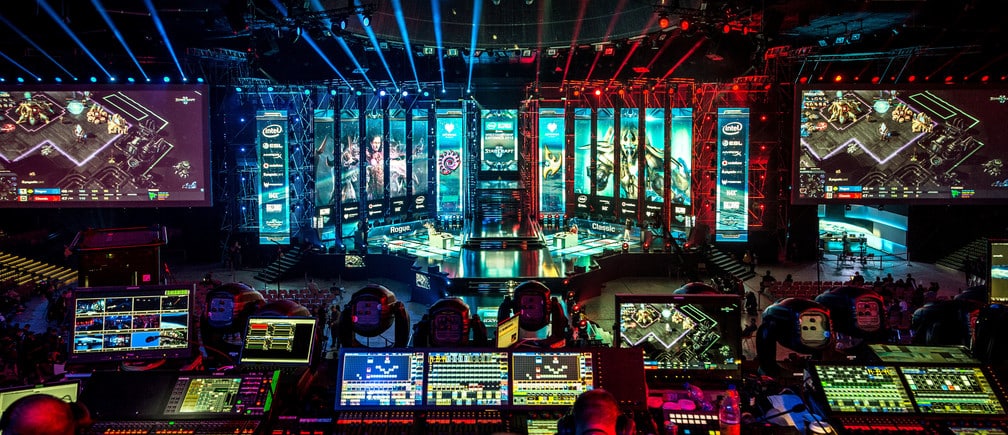The role of AI in the future of video games is set to revolutionize the gaming landscape in unprecedented ways. As technology continues to advance, artificial intelligence is becoming an integral part of game development, enhancing everything from character behavior to game design. With AI-driven algorithms, developers can create more immersive and dynamic gaming experiences that adapt to players’ actions and preferences, making each session unique. This evolution not only promises to elevate gameplay but also to redefine how players interact with virtual worlds.
In the upcoming sections, we will delve deeper into the various facets of AI’s influence on video games. You will discover how AI is being utilized to create smarter non-player characters (NPCs) that can learn and evolve based on player interactions, leading to more engaging and realistic gameplay. Additionally, we will explore the role of machine learning in personalizing gaming experiences, allowing for tailored content that resonates with individual players. From procedural content generation to enhanced storytelling, the possibilities are endless.
As we navigate through the exciting developments in AI technology, we invite you to join us on this journey. By understanding the transformative potential of AI in gaming, you will gain insights into the future of entertainment and how it will shape the way we play. Stay tuned as we uncover the innovations that are set to redefine the gaming industry and enhance your gaming experience like never before.
Enhanced Game Design and Development
Artificial intelligence is revolutionizing the game design and development process. By utilizing AI algorithms, developers can create more complex and engaging game worlds. AI can analyze player behavior and preferences, allowing developers to tailor experiences that resonate with their audience. This leads to a more personalized gaming experience, where players feel more connected to the game.
Moreover, AI can automate repetitive tasks in game development, such as level design and asset creation. This not only speeds up the development process but also allows developers to focus on more creative aspects of game design. As a result, we can expect to see a surge in innovative game concepts and mechanics, driven by AI’s ability to process vast amounts of data and generate unique content.
Intelligent NPC Behavior
Non-playable characters (NPCs) have traditionally followed scripted behaviors, which can lead to predictable and unengaging interactions. However, with the integration of AI, NPCs can exhibit more realistic and adaptive behaviors. AI-driven NPCs can learn from player actions, making them more responsive and dynamic in their interactions.
This advancement not only enhances immersion but also creates a more challenging gameplay experience. Players will need to adapt their strategies based on the evolving behaviors of NPCs, leading to a richer and more engaging gaming environment. As AI continues to evolve, we can expect NPCs to become even more lifelike, blurring the lines between player and character interactions.
Procedural Content Generation
Procedural content generation (PCG) is a technique that uses algorithms to create game content dynamically. AI plays a crucial role in this process, enabling developers to generate vast and diverse game worlds without the need for extensive manual input. This not only saves time but also allows for a more varied gaming experience, as players can explore unique environments with each playthrough.
AI-driven PCG can be applied to various aspects of game design, including terrain generation, quest creation, and even character customization. By leveraging AI, developers can ensure that players encounter fresh challenges and experiences, keeping the gameplay engaging and unpredictable. This approach is particularly beneficial for open-world games, where the scale and diversity of content can significantly impact player enjoyment.
Personalized Gaming Experiences
As AI technology advances, the potential for personalized gaming experiences becomes increasingly viable. AI can analyze individual player data, such as play style, preferences, and skill level, to tailor game content accordingly. This means that players can enjoy a unique gaming experience that adapts to their specific needs and desires.
For instance, AI can adjust the difficulty level of a game in real-time, ensuring that players are consistently challenged without becoming frustrated. Additionally, personalized storylines and character arcs can be developed based on player choices, leading to a more immersive and emotionally engaging experience. This level of customization is set to redefine how players interact with games, making each experience truly unique.
AI in Game Testing and Quality Assurance
Quality assurance is a critical aspect of game development, and AI is poised to transform this process. By employing AI-driven testing tools, developers can identify bugs and issues more efficiently than traditional methods. AI can simulate player behavior, allowing for comprehensive testing of various scenarios and ensuring a smoother gaming experience upon release.
Furthermore, AI can analyze player feedback and performance data post-launch, providing developers with valuable insights into how their games are received. This data-driven approach enables continuous improvement and updates, ensuring that games remain relevant and enjoyable long after their initial release. As AI continues to evolve, its role in game testing will become increasingly vital, leading to higher quality games and enhanced player satisfaction.
| Aspect | Description |
|---|---|
| Enhanced NPC Behavior | AI will enable non-player characters (NPCs) to exhibit more realistic and adaptive behaviors, making interactions more engaging and lifelike. |
| Procedural Content Generation | AI algorithms can create vast and diverse game worlds, levels, and quests dynamically, providing unique experiences for each player. |
| Personalized Gaming Experience | AI can analyze player behavior and preferences to tailor game content, difficulty levels, and storylines, enhancing player satisfaction. |
| Improved Game Testing | AI can automate the testing process, identifying bugs and balancing issues more efficiently than human testers, leading to higher quality games. |
| Realistic Graphics and Animation | AI techniques, such as deep learning, can improve graphics rendering and animation, creating more visually stunning and immersive environments. |
| Voice and Language Processing | AI-driven voice recognition and natural language processing will allow for more interactive dialogue systems, enabling players to communicate with characters. |
| Adaptive Difficulty | AI can adjust the game’s difficulty in real-time based on the player’s skill level, ensuring a balanced challenge that keeps players engaged. |
| AI Companions | Players may have AI companions that learn and adapt to their playstyle, providing assistance and enhancing the overall gaming experience. |



